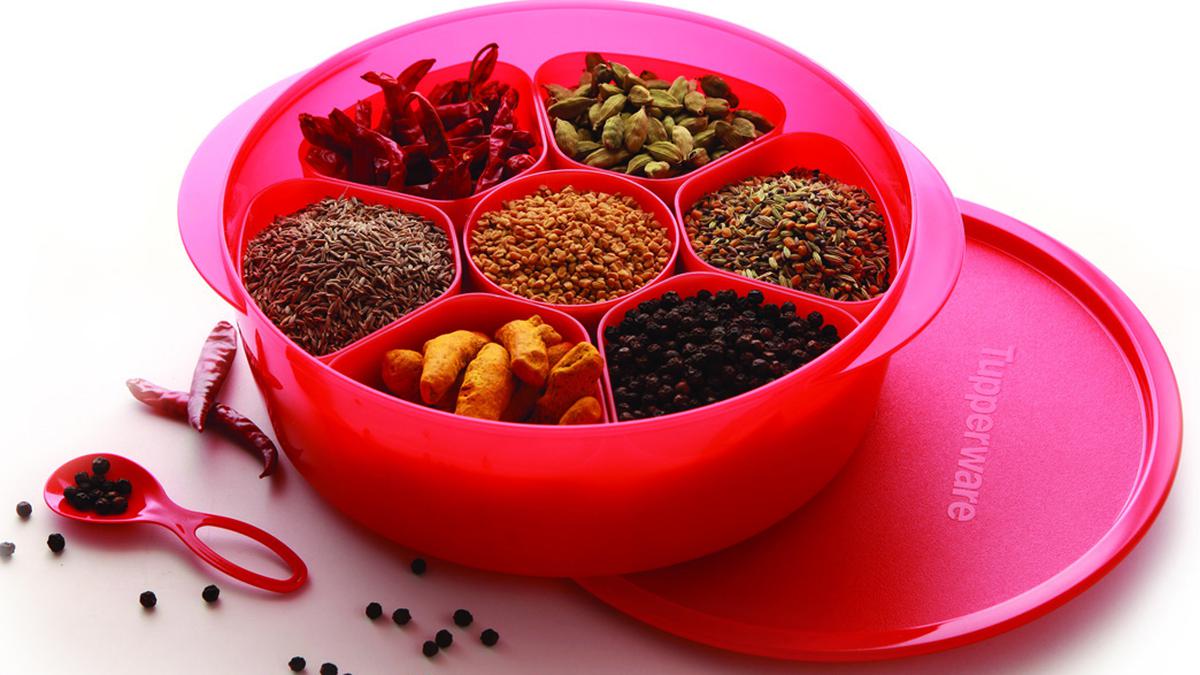
Column | When Tupperware made us feel part of the future
The Hindu
When Tupperware was introduced, it was an immediate hit, sweeping other more expensive gifts to the side. Over time, some lids warped, others went missing, the containers were stained yellow from food, but they were still hoarded and treasured. Tupperware and its desi cousins were nothing short of revolutionary in Indian homes and kitchens. Stainless steel dabbas were heavy. Glass bowls were not portable. Tupperware, like Maggi, was just exhilaratingly convenient. The Tupperware company might be shutting down soon but there will always be a special corner in Indian hearts (and cupboards) for those containers.
Tupperware might be losing its lid as a company but there will always be a special corner in Indian hearts (and cupboards) for those containers.
Even today, thousands of Indians are reprimanded daily for having forgotten their Tupperware lunch boxes at school or office. Often they are more important than the lunch itself. Millions of Indian homes have Tupperware that does not belong to them — ones they “forgot” to return after someone sent them some food years ago.
I discovered Tupperware in the U.S. as a student. Our home in India had just gotten a microwave but microwave-safe containers were still hard to find. On one of my trips back home, I brought along with the usual Godiva chocolate, Dove soap and duty-free perfume, a set of Tupperware boxes in various sizes.
They were an immediate hit, sweeping other more expensive gifts to the side. Over time, some lids warped, others went missing, the containers were stained yellow from food, but they were still hoarded and treasured. Tupperware and its desi cousins were nothing short of revolutionary in Indian homes and kitchens. Stainless steel dabbas were heavy. Glass bowls were not portable. Tupperware, like Maggi, was just exhilaratingly convenient.
They could nest in each other like Russian matryoshka dolls. We no longer needed to use that empty tin that once contained Danish butter cookies. When the Tupperware lid clicked smartly into place, everything felt right in the world. And best of all, we felt worldly.
As that iconic line in the film The Graduate had told us: “the future is plastics”. Tupperware’s arrival in India made us feel we were part of that future, that acche din had finally arrived and it would be leak-proof and airtight.
Tupperware was started in 1946 in Massachusetts by Earl Tupper at a time when saving leftovers had become a household necessity in the economic hardships of the post-War years. But it cleverly became aspirational as well with self-employed salespeople, mostly women, hosting Tupperware parties at home to sell the product at a time when you could not buy it in stores.

 Run 3 Space | Play Space Running Game
Run 3 Space | Play Space Running Game Traffic Jam 3D | Online Racing Game
Traffic Jam 3D | Online Racing Game Duck Hunt | Play Old Classic Game
Duck Hunt | Play Old Classic Game











